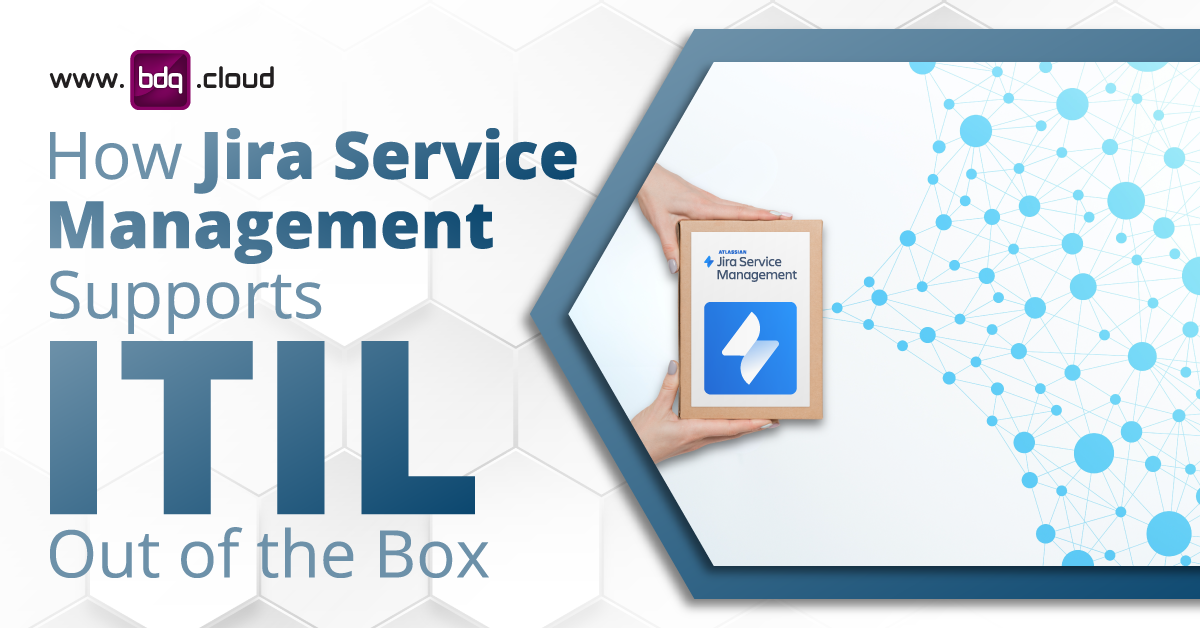Introduction
As someone who remembers the early days of Jira Service Management (JSM) - formerly Jira Service Desk - I've seen it evolve from a simple extension of Jira into a full-fledged IT Service Management (ITSM) solution. With years of experience implementing ITIL-aligned service desks across various platforms, I can confidently say that JSM offers one of the most straightforward and efficient ways to build an ITIL-compliant service desk, even for teams with minimal ITIL expertise.
Why JSM is a Strong ITIL-Aligned Solution
Jira Service Management (JSM) provides a structured, yet flexible, ITIL-aligned service desk that allows organizations to improve service management processes without excessive customization or complex configurations. It’s built to support ITIL best practices from the start, making it a powerful solution for IT teams looking for quick and effective implementation.
JSM has also passed the PinkVERIFY ITIL 4 assessment for at least seven ITIL practices, proving its alignment with industry standards. Additionally, at BDQ, my colleague James Dunstan and I had the opportunity to work alongside Atlassian on PeopleCert’s ITIL-Accredited Tool Vendors (ATV) program, ensuring JSM meets ITIL compliance requirements and supports organizations in adopting best practices effectively.
Some key reasons why JSM stands out:
-
Fast and Simple Implementation: Even without deep ITIL knowledge, teams can quickly build a well-functioning service desk.
-
Strong Integration with Atlassian Ecosystem: JSM seamlessly connects with Jira, Bitbucket, and Confluence, enhancing collaboration and knowledge management.
-
Scalability and Customization: While ITIL practices are supported out of the box, JSM remains flexible to adapt to specific business needs.
ITIL Processes Supported by JSM Out of the Box
JSM supports several key ITIL practices natively, helping organizations establish effective ITSM workflows right away:

-
Service Request Management – JSM provides an intuitive portal for handling service requests efficiently, reducing wait times and improving user experience.
-
Incident Management – With built-in categorization, automation, and escalation rules, teams can resolve incidents faster.
-
Change Enablement – Change approvals, workflows, and impact assessment tools help minimize risks when implementing changes.
-
Problem Management – JSM allows teams to track recurring issues, analyze root causes, and implement long-term solutions.
-
Service Level Management – Define SLAs to ensure requests and incidents are resolved within agreed timelines.
-
Knowledge Management – Direct integration with Confluence enables teams to build a self-service knowledge base, reducing ticket volume.
Automation and Reporting: A Game-Changer for ITSM
One of JSM’s strongest features is its no-code automation engine, which allows teams to build complex workflows effortlessly. This makes it easier to enforce ITIL-aligned processes while reducing manual work.
Additionally, real-time dashboards and reporting provide IT teams with valuable insights into service performance, helping them continuously improve key metrics like response times and customer satisfaction.
Areas for Improvement
While JSM offers a solid ITIL-aligned foundation, there are areas Atlassian is actively improving, particularly asset management. While JSM provides some asset tracking capabilities, organizations looking for more advanced asset and configuration management may need additional tools or integrations.
Why JSM is a Great Choice for ITSM
For organizations looking for an ITSM solution that is modular, easy to implement, and highly scalable, JSM is an excellent choice. The Atlassian Marketplace further extends its capabilities with apps for advanced reporting, integrations, and automation, making it a versatile option for businesses of all sizes.
Conclusion
Jira Service Management has come a long way, evolving into a strong ITIL-aligned ITSM tool that balances simplicity with powerful features. Whether your goal is to improve service request management, incident resolution, or change enablement, JSM provides an effective, out-of-the-box solution. With its strong automation, reporting, and seamless integration with development tools, it’s a great fit for teams looking to optimize their IT service management processes while maintaining flexibility.













